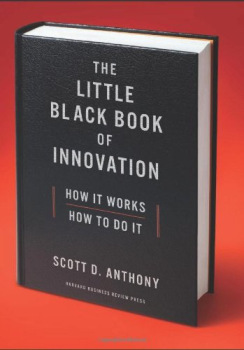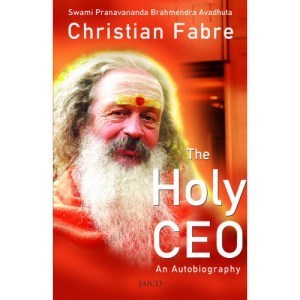Raj Shankar's Blog, page 51
May 12, 2013
On Mother’s Day
Not one for celebrating days, but this is one day that I truly believe should be on every one’s agenda – if not everyday at least  today.
today.
What comes to our mind when we think of ‘Mother’? Words care, love, selfless giving, nurturing, protecting, her smile, her patience and so on. All these words that we use to describe our mother if you see is true for those forces that create and protect not only us as individuals, but the whole wide world.
Let us take a look at Mother Earth. You can see in her the same patience, the care, the selfless giving, her endless forbearance. Look at Mother Nature. You can see every aspect that you enjoyed in the folds of your mother’s sari, to extend to include you and all other living creatures. Obviously just as your mother would remonstrate you gently when you become self-destructive, these forces also attempt to remind us of the right way to live our lives – that too in our own interests.
The word ‘Mother’ to me represents that force that creates protects and nurtures another life, selflessly. The word ‘Mother’ represents the reason for our life and living. In all humility today, I as a son would want to acknowledge and express my gratitude to all the manifestations of the force called ‘Mother’ – which is the reason for my very existence and sustenance.
Happy Mother’s Day!


May 11, 2013
Interesting Links This Week: 12-May-2013
I dedicate this week’s links to the ‘Healthy Entrepreneur’ or rather to the ’The Health Of An Entrepreneur’: 
If you want to do your job – you need to sleep! http://bit.ly/11ZTcl3
To how many of these habits are you a victim? Awareness is the first step. here is the killer seven: http://bit.ly/tGP9O
You have heard it from everyone… now hear it from entrepreneurs on three things that an entrepreneur should practice to stay fit http://bit.ly/RcIkf3


May 10, 2013
Books and Me: The Little Black Book Of Innovation
Book Title: The Little Black Book Of Innovation
Author: Scott D. Anthony
Innovation is a buzzword today. The term jugaad being associated with it has only catalyzed its usage in our geography. Almost anything that is slightly different is categorized under this subject. Innovation is also touted to be the game changing tool for emerging enterprises. While there are hundreds of books on innovation, the little black book of innovation is more like an introductory book for practitioners. It brings a good blend, of theoretical references and their practical adaptations. It demystifies numerous illusions that so many of us carry on the field with regards to the subject. A very interesting chapter on the author’s selected ten innovation masters, also introduces the reader to more worlds and bodies of literature. While some aspects of the book tend to have American references, I believe it will not come in the way of grasping the essence of the book’s intention by a non-american reader.
The second part of the book contains a suggested 28 days innovation program. This four week program is structured around four broad groups or stages namely , discovering opportunities, blue printing ideas, assessing and testing ideas and moving forward. The overall themes are then broken down into short day wise suggestions on behaviors and practices. Each of those chapters contain interesting anecdotes, cases, how to tips, exercises and references for further reading.
The interesting trend that I am beginning to see in recent books including this, is the references to blogs and websites rather than papers and books. This in my opinion is bound to increase. There is also a list of interesting books put together by the author relating to the various topics discussed in the book.
Overall the book is an easy and interesting read. It is written with practitioner in mind and contains number of triggers which may make you put the book down and start doing something about innovation. I am sure the author will be delighted if this happens!


May 9, 2013
Enjoy Early – At what cost?
This write-up is inspired by an interaction that I had this afternoon with a young energetic chap in his mid-twenties - who when asked what he wants to do replied “Retire by 40!” After he left, this answer lingered behind for a long time. What also hit me was the fact his fitness seemed far from supporting this intention!
Today a lot more youngsters are falling prey to lifestyle diseases. It looks like economic development has this silent side  effect! Slowly and steadily we are falling prey to this silent epidemic. The sad part is there are a lot of enabling factors in the ecosystem that is also encouraging this trend. Food is one of the main culprits! Quality of food is dropping. Food options are increasing – not all of them truly healthy! Fast food almost means we end up accumulating a lot more fat. Eating also has become a break, a reason to get up from the uncomfortable office couch!
effect! Slowly and steadily we are falling prey to this silent epidemic. The sad part is there are a lot of enabling factors in the ecosystem that is also encouraging this trend. Food is one of the main culprits! Quality of food is dropping. Food options are increasing – not all of them truly healthy! Fast food almost means we end up accumulating a lot more fat. Eating also has become a break, a reason to get up from the uncomfortable office couch!
The next is orthopedic issues (back, joint, neck, arms, etc). The increasing number of clinics in this space and the numerous paramedical solutions are only an indication of the growing problem. Why is this happening? Simply because we are all working really hard. Working hard sitting at our seats doing so called knowledge work! Think again!
No doubt that our economic returns are increasing by this aggresive approach, but it is also increasing the pressure to enjoy early in life. This leads to people doing things that they could have done over 40 years in 10 years. Hastening life and everything in life is causes stress.
Why not stop for a second and look at what’s happening? As Nandan Nilekani shared during his Ted talk – let us not lose focus and turn out greatly spoken about asset (youth) into a huge liability!
Think! That’s really what’s needed if we are relying on the Gen Next to take us places…


May 8, 2013
Vedantic Wednesday: Reflection and Anger
Last week I shared with you how becoming aware of your anger can be one method of anger handling.
The second method is one of reflection. This involves regularly spending time re-looking at various situations where you did not manage to maintain your poise. These should be done regularly in specified frequency till you gain control over yourself and your reactions. If you can reflect over your occurrences and reason, most often you will figure that what seemed like a really big problem was in fact too petty! In fact sincere reflection over past occurrences of anger episodes and trying to decode the reason for your anger can be quite embarrassing You will be pretty much ashamed at yourself for the silly reasons over which you lost your cool. But you must not stop here. You must make the understanding permanent, by adding a bit more understanding to yourself. At least the next time the same triggers come by, you start recognizing them and with recognition comes slowing down of reactionary response.
These two methods (awareness and reflection) are not permanent solutions to the problem. They are just a starting step in maintaining poise. They are starting steps to not allowing the triggers to upset your balance. They are attempts to make you more aware of your potential to lose your cool. They are ways to allow your intellect to kick into action before your mind responds. The result of all this is you catching yourself early in the process of getting angry and thereby, reducing the harmful impact of its occurrence.
But how does one actually stop getting angry? Vedanta says, it is through the understanding of your desires. Anger is only an outcome of a disruption in the flow of your expectations, which are born out of your desires. A very deep and typical Vedantic thought that seems complex on the face of it, but one that is really simple on deep reflection.
It is really difficult to internalize and practice. But it is definitely worth the attempt for us and our ecosystem!


May 7, 2013
Health and Productivity!
I have been indisposed for the last two days. It has been bothering me and its had its impact on what I do. I have had to  reduce my work and over a couple of days one feels that one’s output has come down significantly. So on days like these I reflect upon the good advice that elders give me – take care of your health. Health comes first!! And more…
reduce my work and over a couple of days one feels that one’s output has come down significantly. So on days like these I reflect upon the good advice that elders give me – take care of your health. Health comes first!! And more…
Since I have been conducting workshops on growth over the last few months and will be doing a few more this month as well – I began wondering if this would apply to firms as well. Absolutely! Wouldn’t it?
If the organization is not healthy how can it perform? But who cares about organization health? And for that matter who is even bothered about it as they press the pedal on performance? Who takes the time to understand it? Is my organization healthy – how do I know? Lot more questions than answers, and understandably so..
To continue the post – the same applies to the entrepreneur as well. Especially during the early years. The entrepreneur is going to be overworked during the formative years of the organization. The stress levels are also going to be high during these years. Though the health of the entrepreneur at this time begs attention, it is not the one that is on top of his mind.
The last few days have reiterated that entrepreneurs need to ensure they don’t lose sight of their health during these years. They need to spend time to exercise and relax, eat healthy food and especially ensure their sleep habits are in place. If these are not taken care of, the journey may be intense but will become a sprint , not a marathon. The idea of many sprints also requires one to know when to stop sprinting consciously – not to stop when you can’t go further. When one stops driven by exhaustion restarting becomes very difficult.
Think about it. I shall also share some posts during my Sunday curation on health and lifestyle tips from some experts.


May 6, 2013
Growth Digest
Over the last few weeks, many people have asked me where they can read more on some perspectives I had shared on  growth. This post is an attempt to consolidate at one place the earlier write-ups on growth. This series may be of interest to all growth custodians and growth enablers within an organization.
growth. This post is an attempt to consolidate at one place the earlier write-ups on growth. This series may be of interest to all growth custodians and growth enablers within an organization.
The links:
What is Growth?: http://bit.ly/10cK4bN
Do you know why you want to grow? http://bit.ly/14lEQA6
On Growing and Ageing: http://bit.ly/YDEXTW
The Shape of Growth: http://bit.ly/11RrFTr
Process of Growth: http://bit.ly/11TV17p
Is Growth to be questioned? http://bit.ly/NVkt1B
Discipline and Growth http://bit.ly/uwH3j8
Are you prepared to Grow? http://bit.ly/13d7r8D
Do share with us your thoughts on growth!
Happy Reading! Happy Thinking!


May 4, 2013
Interesting Links This Week: 05-May-2013
Links that caught my attention this week range from a scholarly paper to the on-ground challenges with regards to innovation
a) A paper that attempts to explain wealth gaps between West and ‘the Rest’ . Why was ‘Rest’ of the world struggling to catch up on entrepreneurship in the 19th century while West was pushing its way to success? http://hbswk.hbs.edu/item/7227.html?wknews=04102013
b) A very interesting write up on how art and science of delivery brought effectiveness not just to a company, not just to a community but to a country at large http://voices.mckinseyonsociety.com/the-origins-and-practice-of-delivery/
c) An article around the moderated panel discussion on Innovation at Wharton Economic Summit 2013 around definition of innovation, its relationship to entrepreneurship and what is required to nurture it http://knowledge.wharton.upenn.edu/article.cfm?articleid=3242


May 3, 2013
Books and Me: The Holy CEO
Book Title: The Holy CEO
Author: Christian Fabre a.k.a Swami Pranavananda Brahmendra Avadhuta
I remember picking this book and dropping it back in the store without even reading the back cover on number of occasions. I am somehow averse to books that attempt to link spirituality to business directly. The other reason probably could have been the fact that it was sub-titled ‘an autobiography’. After having read a few biographies and autobiographies, I began to sense a stereotyped approach to telling the story of one’s life. There was something inherently missing in most of them.
On this occasion, one of the many times when I went looking for answers to my dilemmas of running a small company – something in the book attracted me to read the back cover. I was instantaneously hooked, as the story seemed real and irrational at the same time.
How could a business man especially a foreign national turn to become a Swami? Even if this seemed plausible, how could a Swami straddle spiritual activities while running a for-profit company? Are you as surprised as me on hearing this? Yes! The author Christian Fabre, is the founder-director of the garment company and brand of his own name, while also being Swami Pranavananda Brahmendra Avadhuta.
The story seems to be an unusually honest retelling of a French man’s saga. As he stumbled his way to India, to business, to spirituality, to becoming a Sadhu and accepting his guru’s dictum to continue his career in fashionable garments and use that as his spiritual practice (‘Sadhana’). His attempts to carry out his guru’s orders to try bringing spirituality into the material world seemed like a Bollywood flick.
The story is not linear – one that of a simple straight forward rags to riches but is a heart touching story of trying to be an entrepreneur, failing at it a number of times, struggling to keep an expat family, losing everything en-route gaining the mother’s support and a great friendship to rise like a phoenix.
A very interesting feature of the book is the titled summary at the end which gives a short two to three line summary of every chapter contained in the book . It reminded me of the executive summary feature in Harvard Business Review which I admire and use extensively . But unlike any HBR issue I can assure you – you may not want to read the summary to figure out what to read in the book – it is an absolute page turner not only in pace but in wisdom!
His life is an inspiration to all those who believe that spirituality can be practiced while living and transacting in the material world. His current life style of balancing his ashram activities and his organizational business responsibilities make it seem like a dream come true. It encourages one to consider that values and business are probably not two separate threads but an enmeshed entity.
Apart from being an interesting read, the book is sprinkled with the highest wisdom from advaita philosophy based on the author’s experience. Read the book at your own risk, for it will at the minimum leave you philosophical if not anything more!


May 2, 2013
You Don’t Get an A-Team!
Yesterday I shared with you my firm belief which has been proven time and again, that the success of an entrepreneurial  venture is significantly dependent on having an A-Team
venture is significantly dependent on having an A-Team
During the last few workshops we had some local entrepreneurs who have been successful come and share their experiences as well as answer some queries of the early stage entrepreneur aspirants. When it came to the question of people – the one thing that came out very clear is that they were not able to find those talented boys and girls as well. They seemed to have suffered the same challenge. Its what they did after that, which made all the difference.
When they could not recruit their A–Team, they went ahead and created that A-Team. So my biggest take away from these panel discussions with so many successful but less celebrated entrepreneurs is that “creating an A-Team” is the solution to “finding an A-Team”. I shall look up my notes (I made some detailed ones) and share some of the tips and tricks that they used to create talent when they could not find them.
But in the meantime currently in India as entrepreneurs and small business owners need to scale their enterprises, they need to find talent – right talent. Without the right talent most businesses are going to remain where they are! This may sound like a doomsday prediction, but truth has always been bitter.
The solution is converting people into the talent that we need. It is a tough job, but as one entrepreneur shared, it is probably one thing that you will pat yourself for when you look back after many years. I am also sure it is the single most satisfying thing one may every end up doing in the process of creation of wealth – the process of creating talent..





